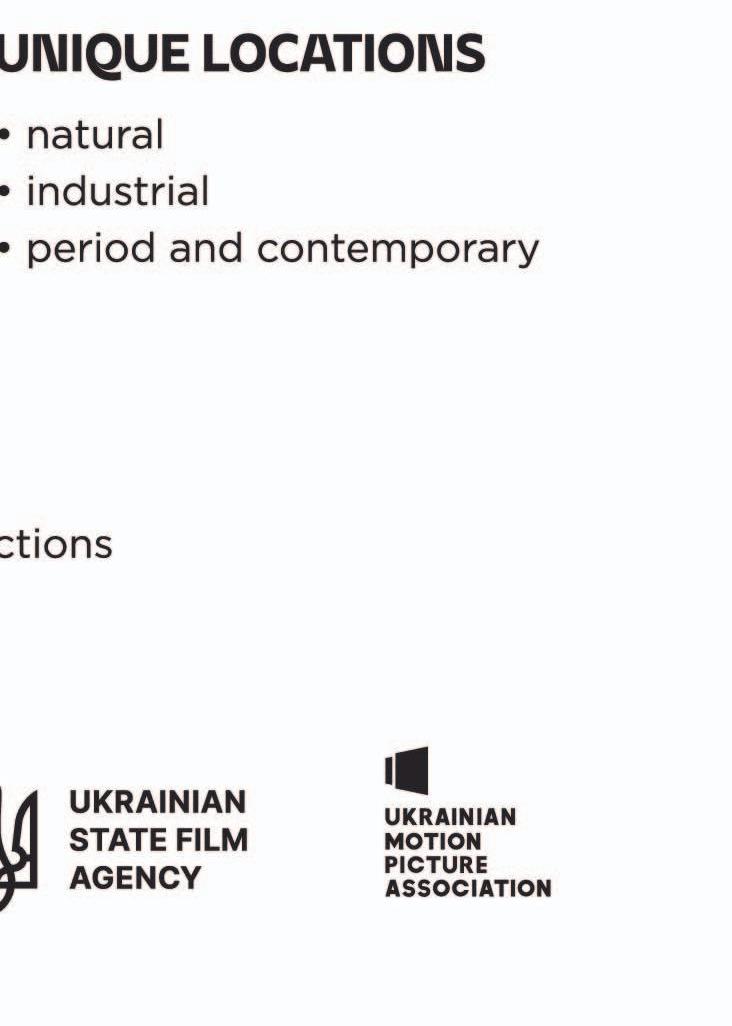
6 minute read
Navigating Cancel Culture


Cancel culture has both been praised for holding the powerful to account but also blamed for creating a climate where talent and industry executives are afraid to speak their minds. makers investigates the rise and ramifications of cancel culture.
Navigating the culture wars is no easy task. From US comedian Dave Chapelle through to Harry Potter author JK Rowling, numerous celebrities have been cancelled for what they have said in recent years. Simply put, cancel culture is the idea of taking away support for an individual, brands, shows and movies due to what some consider to be offensive or problematic remarks or ideologies. Sometimes this can have damaging financial and professional consequences. Other times, there seems to be little long term affect. Some see participating in cancel culture as the most effective way to hold public figures to account, especially if no other lawful way appears to be working. The term became popular with the #MeToo movement, as public figures such as Harvey Weinstein, Kevin Spacey, and R. Kelly were all cancelled due to allegations of sexual abuse. Since then, cancel culture has made its way into mainstream vocabulary. The verb ‘to cancel’ entered the official Merriam-Webster dictionary earlier this year. Last year, J.K Rowling was cancelled for a succession of online posts and activities that have been labelled as transphobic by many LGBTQ+ activists and organisations.
This year, Bourne Ultimatum star Matt Damon told The Sunday Times that he only recently stopped using a homophobic slur commonly used to refer to gay men after his daughter told him it was dangerous – leading to widespread criticism and a clarification from Damon.
Brands have been affected too. Starbucks was cancelled for telling employees not to wear Black Lives Matter t-shirts and badges. Pancake brand Aunt Jemima was cancelled last year for perpetuating racist stereotypes. In response, Quaker Oats, the owner of the brand, announced it would retire the name.

That result sparked cancellers to double their efforts to get another food brand, Uncle Ben, to change its name for the same reason. It worked and the brand's parent company, Mars, said it would change it to Ben's.
Some people who have been cancelled have gone on to be held accountable for serious crimes, relating to what they were called out for such as Harvey Weinstein, R Kelly and Bill Cosby.
However, others believe cancel culture is more of a mob mentality that’s got out of control. Sometimes it seems like a new celebrity falls out of favour every day.
Others think cancel culture is creating an onslaught of boring movies and television series. Atlanta creator David Glover took to Twitter earlier this year after noticing users on the social media platform complaining about how tired they are of reviewing lacklustre films and series.
“We’re getting boring stuff and not even experimental mistakes because people are afraid of getting cancelled,” the comedian wrote. “So they feel like they can only experiment with aesthetic.”
Johnny Depp also took aim at cancel culture during an appearance at the San Sebastian Film Festival, describing it as being “so far out of hand” while discussing his fall from grace in Hollywood.
The actor was speaking in the wake of his libel case against British tabloid The Sun, which characterised Depp as a wife-beater as it related to the treatment of ex-wife Amber Heard. He lost that court case and subsequently did not appear in the third entry in Warner Bros’ Fantastic Beasts franchise.
The actor said cancel culture as a movement is “so far out of hand now that I can promise you that no one is safe. Not one of you. No one out that door. No one is safe, as long as someone is willing to say one sentence.”
Fifty Shades of Grey star Dakota Johnson also thinks cancel culture has gone too far. “I think there’s definitely a major overcorrection happening,” she told The Hollywood Reporter recently. “But I do believe that there’s a way for the pendulum to find the middle.”
Navigating cancel culture is tricky even for the biggest studios and streamers, no matter how much PR support they can pay for. Netflix, for example, has come in for serious criticism for airing Dave Chappelle special The Closer, in which he says, "gender is a fact" and that LGBT people are "too sensitive".
The Netflix special sparked a transgender backlash and a Netflix employee walkout.
Netflix chief content officer Ted Sarandos apologised for how he handled internal dissent from employees, saying: "I screwed up."
He told Variety: “First and foremost, I should have led with a lot more humanity. Meaning, I had a group of employees who were definitely feeling pain and hurt from a decision we made. And I think that needs to be acknowledged upfront before you get into the nuts and bolts of anything. I didn't do that."
It's little wonder that cancel culture is having profound impact on companies throughout the media and entertainment sector, with executives acutely worried that something they say will affect their business or that a star interview damages the prospects of a movie or TV series.
Many within the industry are investing in training as a result. “Some of my clients are giving all of their staff courses on unconscious bias to educate and make sure their people are more aware,” says one PR executive.
Unconscious bias training is designed to tackle the deep-seated prejudices we all absorb due to living in deeply unequal societies.
In the UK, for example, ScreenSkills and BIFA rolled out an online learning module this year designed to address unconscious bias and to promote greater diversity and inclusion in the screen industries.
Given that the creative industries have long struggled with deep seated issues around diversity, bullying and sexism, such initiatives have been welcomed –and could also go some way to tackling the root causes for why so many stars and execs have been cancelled in the first place.
“we’re getting Boring stuff and not even experimental mistakes Because people are afraid of getting cancelled.”






















